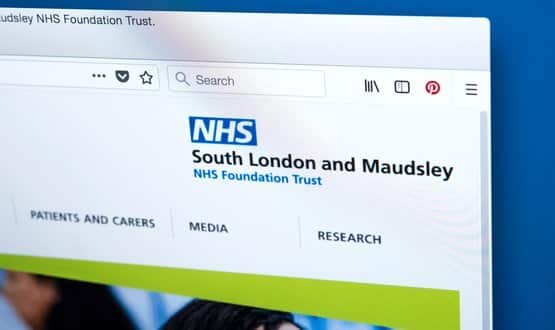Patients get better night’s sleep thanks to Digital Care Assistant
- 9 July 2019

Nurses at a leading hospital can now check the overnight vital signs of mental health patients without disrupting sleep.
Oxford Health NHS Foundation Trust has introduced Oxehealth’s Digital Care Assistant (DCA), which allows them to check on patient’s safety at night without a physical assessment.
The technology uses an optical sensor to detect movement, pulse and breathing rate, instead of nurses manually checking up to four times an hour.
Nurses on the Vaughan Thomas Ward, a male acute inpatient ward at the Warneford Hospital, are able to conduct observations more quickly without impacting safety.
Carol Gee, the modern matron on the ward, said: “We engaged with the nursing team, patients and their families before the sensors were installed. We emphasised that they were not about replacing nursing judgement, but about giving patients a better night’s sleep and enhancing their privacy and dignity.
“Using this technology definitely feels like a step forward. The DCA is not intrusive, and it has had a significant impact on patient care, which is what we are all working to improve.”
Vanessa Odlin, Oxford Health’s joint service director for Oxfordshire, added: “We have used nursing observations in mental health care for a long time, and we have always had to see patients in person. Now we do not have to do that.
“The experience of people involved in this project has been astoundingly positive. Patients have recognised that this is about getting a better night’s sleep and not having nurses disturb them at night by coming into their room or looking through a vision panel in the door.
“Nurses have seen this as a way to improve their relationship with patients and their experience of the ward. The project has also shown staff that problems can be solved. We can be innovative and use technology to deliver real benefits for patients.”
Oxford Health began working with Oxehealth after consultant psychiatrist, Dr Alvaro Barrera, led a study on the importance of sleep recovery.
As part of the study the trust installed the DCA in six patient rooms in 2018. Between February and April 2019 more than 5,000 observations were taken over 300 patient nights, with an in-depth analysis of a sample of these observations concluding observations made with the DCA were just as safe as those without it.
Dr Barrera said: “This system is a real innovation in mental health; while you constantly see developments in physical care a change like this just hasn’t been seen in years.
“The sensors act as a valuable tool to improve patient experience and also free up nurses for other tasks, so they can dedicate more time to patients who need more intensive care.”
The trust is looking to expand the DCA across the ward and to other wards within the trust.
The vital signs element of the DCA was approved as a medical device for the first time in October 2018. It was certified as a Class 2a medical device in Europe by the British Standards Institute, marking the first time such a device has been approved by a regulator.





1 Comments
*This really answered my problem, thank you!
Comments are closed.